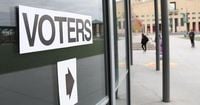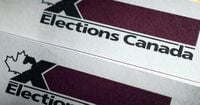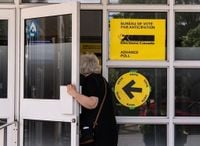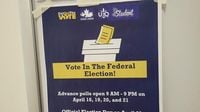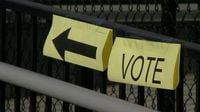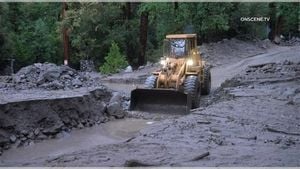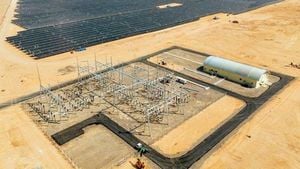As Canadians prepare for the 2025 federal election, advance voting is officially underway, giving citizens the opportunity to cast their ballots ahead of the election day scheduled for April 28. This year, advance polls will be open from Friday, April 18 through Monday, April 21, allowing voters ample time to participate in the democratic process.
Polling stations across the country will operate from 9 a.m. to 9 p.m. local time during these four days. Voters can find their assigned polling locations on their voter information cards, which are mailed to them prior to the election. For those who did not receive a card, they can easily locate their polling station by visiting the Elections Canada website and entering their postal code.
“Unlike in some provincial and municipal elections, in federal elections, electors may only vote at their assigned polling station,” Elections Canada stated, emphasizing the importance of knowing where to vote.
In addition to advance polling, Canadians have several options for casting their votes. Voters can also choose to vote early at any local Elections Canada office until April 22 at 6 p.m. This option provides flexibility for those who may not be available on election day. Voters must complete an Application for Registration and Special Ballot at the office, showing proof of identity and address.
For those who prefer to vote by mail, it is essential to apply online or at an Elections Canada office by the deadline of April 22. Once a mail-in ballot is requested, voters are advised that they cannot change their minds and vote at either the advance polls or on election day.
The federal election itself is scheduled for April 28, 2025, with polls open from 9:30 a.m. to 9:30 p.m. EST in Ontario. Voting hours will vary by time zone, ensuring that all Canadians have the opportunity to participate in the electoral process.
To vote, individuals must be at least 18 years old and provide proof of identity. There are several acceptable forms of ID. Voters can present a government-issued photo ID that includes their name and address, such as a driver’s license. Alternatively, they can provide two pieces of ID, both of which must have their name, with at least one displaying their current address. If neither option is available, voters can declare their identity and address in writing, with someone from their polling station vouching for them. However, that person must also provide proof of their identity and can only vouch for one individual.
As Canadians engage in the electoral process, Elections Canada is also actively hiring poll workers for various paid positions, ensuring that the voting process runs smoothly.
The advance polling period is a crucial time for voter participation. In previous elections, nearly five million Canadians voted at advance polls in 2019, while the number rose to 5.8 million in the 2021 campaign. This trend highlights the growing importance of early voting in Canada’s democratic landscape.
With the election fast approaching, it is vital for Canadians to be informed about their voting options and requirements. Whether voting in advance, by mail, or on election day, every vote counts in shaping the future of the country.
Canadians are encouraged to check their registration status and ensure they have the necessary identification ready for when they go to vote. This election is not just a civic duty; it is an opportunity for citizens to voice their opinions and influence the direction of their nation.
As the campaign unfolds, various issues are being debated, and candidates are making their pitches to the electorate. The outcome will depend on voter turnout and engagement, making the advance polling days all the more significant.
In summary, advance voting for the 2025 federal election is now open, giving Canadians a chance to participate in their democracy ahead of the official election day. With multiple options available for casting a vote, it is essential for voters to be prepared and informed, ensuring that their voices are heard.
